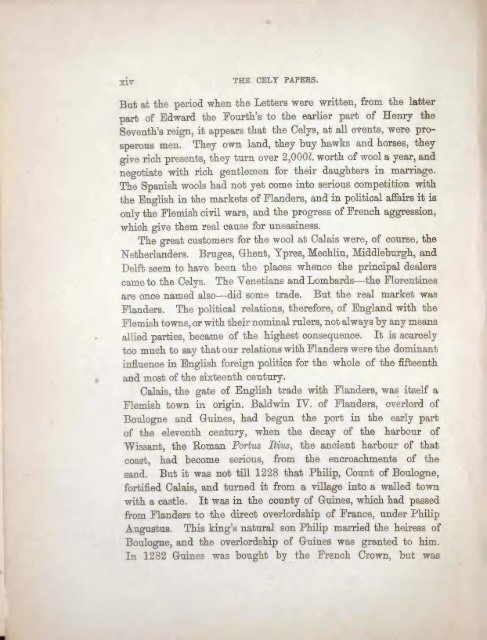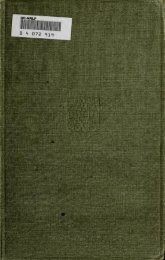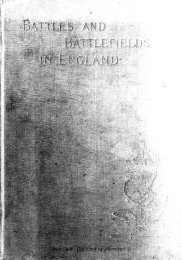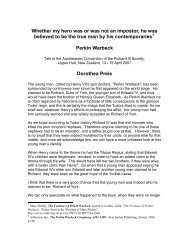Cely Papers - Richard III Society - New Zealand Branch
Cely Papers - Richard III Society - New Zealand Branch
Cely Papers - Richard III Society - New Zealand Branch
Create successful ePaper yourself
Turn your PDF publications into a flip-book with our unique Google optimized e-Paper software.
XIV THE CELY PAPERS.<br />
But at the period when the Letters were written, from the latter<br />
part of Edward the Fourth's to the earlier part of Henry the<br />
Seventh's reign, it appears that the <strong>Cely</strong>s, at all events, were prosperous<br />
men. They own land, they buy hawks and horses, they<br />
give rich presents, they turn over 2,000£, worth of iwool a year, and<br />
negotiate with rich gentlemen for their daughters in marriage.<br />
The Spanish wools had not yet come into serious competition with<br />
the English in the markets of Flanders, and in political affairs it is<br />
only the Flemish civil wars, and the progress of French aggression,<br />
which give them real cause for uneasiness.<br />
The great customers for the wool at Calais were, of course., the<br />
Netherlanders. Bruges, Ghent, Ypres, Mechlin, Middleburgh, and<br />
Delft seem to have been the places whence the principal dealers<br />
came to the <strong>Cely</strong>s. The Venetians and Lombards-the Florentines<br />
are once named also-did some trade. But the real market was<br />
Flanders. The political relations, therefore, of England with the<br />
Flemish towns, or with their nominal rulers, not always by any means<br />
allied parties, became of the highest consequence. It is scarcely<br />
too much to say that our relations with Flanders were the dominant<br />
influence in English foreign politics for the whole of the fifteenth<br />
and most of the sixteenth century.<br />
Calais, the gate of English trade with Flanders, was itself a<br />
Flemish town in origin. Baldwin IV. of Flanders, overlord of<br />
Boulogne and Guines, had begun the port in the early part<br />
of the eleventh century, when the decay of the harbour of<br />
issant, the Roman Portus Itius, the ancient harbour of that<br />
coast, had become serious, from the encroachments of the<br />
sand. But it was not till 1228 that Philip, Count of Boulogne,<br />
fortified Calais, and turned it from a village into a walled town<br />
with a castle. It was in the county of Guines, which had passed<br />
from Flanders to the direct overlordship of France, under Philip<br />
Augustus. This king's natural son Philip married the heiress of<br />
Boulogne, and the overlordship of Guines was granted to him.<br />
In 1282 Guines was bought by the French Crown, but was















